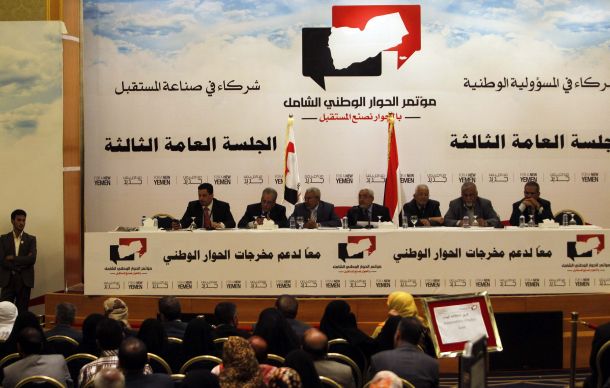
Delegates attend the third general plenary session of Yemen’s National Dialogue conference in Sana’a on October 27, 2013. (Reuters)
Sana’a, Asharq Al-Awsat—The Transitional Justice Team at the National Dialogue Conference has failed to ratify its final report for the third time after representatives of the General People’s Congress (GPC) led by former president Ali Abdullah Saleh objected to a number of articles.
The team’s rapporteur, Shadha Al-Harazi, told Asharq Al-Awsat: “Most representatives agreed to the vote on the report in its entirety, according to the recommendation from the National Dialogue Conference’s Conciliation Commission, but representatives of the GPC refused and caused the vote to fail.”
Harazi added: “The Conciliation Commission removed the disputed articles, especially those related to political isolation and the immunity bills. Some parties refused to vote on an article allowing the cancellation of immunity [from criminal prosecution] granted by the former president and his senior aides during in his rule. Despite that, representatives of the GPC continued to object and forced the failure of the vote.”
There were “fundamental differences with the GPC on issues related to transitional justice and political isolation and immunity, as well as compensation for damages, revealing of the truth, and apologizing to victims” of the former Saleh regime, according to Harazi.
In other news from the National Dialogue Conference, the Conciliation Commission has resolved a number of articles in its report that some members were disputing.
According to local media sources, the Commission ratified two articles defining the identity of the state. The first listed Islam as the state religion and Arabic as the official language. The other allowed that Yemen will be an independent federal state with full sovereignty and a republican political system. The second article also said that Yemen is a civil state based on the consent of the people and the rule of law, and that the state is an integral part of the Arab and Islamic worlds.
Additional reporting contributed by Hamdan Al-Rabhi.
